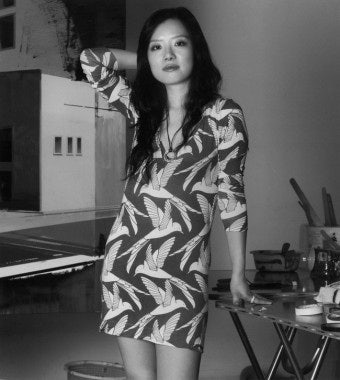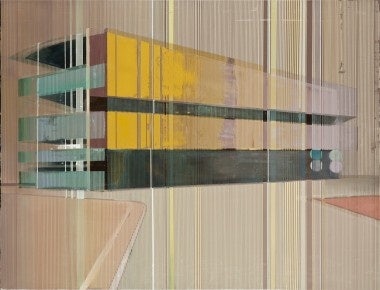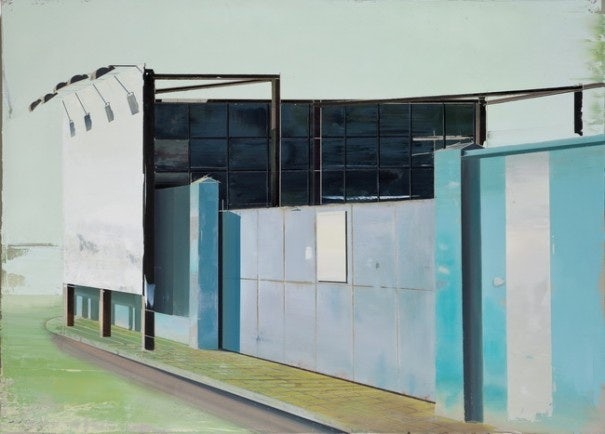Cui Jie: Drop All Labels#

Born in Shanghai, educated in Hangzhou, and currently working in Beijing, the young Chinese artist Cui Jie (崔洁) considers herself a typical member of China's "Post-80s" generation -- those born and raised in the "reform and opening" years of the 1980s. A graduate of the China Academy of Art, Cui has quickly established herself as one of the country's rising young art stars, with her work being shown at the fourth Prague Biennale, Beijing's lberia Center for Contemporary Art, the Tomas Y Valiente Art Center in Madrid and several other art institutions in China as well as abroad. Cui's work is gaining exposure in the US as well, having been described by the Wall Street Journalas "[evoking] the painterly eeriness of German artists Gerhard Richter and Neo Rauch."
Recently, following the opening of her group exhibition with young artists Li Shurui, Zhang Jungang and Li Jie in Shanghai, Cui Jie spoke to Bundpic about her recent artwork, thoughts on the status of female artists in the current Chinese contemporary art world, and feelings toward the Post-80s generation in China.
From Bundpic (translation by Jing Daily team):
Bundpic (B): Some people think the work you're showing at this new exhibition lack "Chinese characteristics." In your opinion, what is art with Chinese characteristics?#
Cui Jie (CJ)#
: As far as I'm concerned, those paintings depicting Mao are considered as having "Chinese characteristics," which is a selling point for them. I don't think I have the same kind of character, and don't plan on creating this kind of work. However, I am Chinese and grew up and live in China, so this in itself can sustain my creativity. I understand the world through the window of China.
With globalization, though, the whole concept of so-called "Chinese characteristics" has been blurred. But even though I don't emphasize them, there are definitely some Chinese "symbols" that I've been exposed since birth. But whether these symbols come out in my work is something the audience needs to decide.

B: Has your "female identity" affected your creativity?#
CJ#
: It certainly affects all female artists. I don't feel it right now, but the idea of getting married and starting a family will impact my future work. This is how I foresee "female identity" impacting my work. But being a female artist is an advantage, too. Exhibitions also need work by female artists, just like the world needs people of all colors and genders. In my opinion, my creativity is not something that comes from a female perspective, but from the commonality of human beings. Looking at things in that binary, narrow way -- male vs. female -- limits your creative perception.
B: Many female artists [in China] are referred to as "feminist" artists as a sort of title? Do you expect this? How to you interpret the word "feminist"?#
CJ#
: First of all, I don't think I have the right to declare myself a feminist. Like I said, what I create all comes back to the commonality of human beings. Plus, nowadays women don't have to be as radical to fight for their rights. They can show their personality and charisma in a variety of ways.
B: When you're not painting, what are your hobbies? Similar to other members of the Post-80s generation?#
CJ#
: Sure, similar to most Post-80s people: watch TV, have dinner with a group of friends, sometimes go to karaoke. I think I'm a pretty typical Post-80s girl.
B: Today, we see more and more young artists start to rise in visibility, then disappear quickly after gaining some fame. As a young artist, what do you make of this?#
CJ#
: I think it all depends on the individual's judgement. Some of my friends are susceptible to being interfered with by others after their work improves and becomes more marketable. Lots of gallery owners and critics pump them up, so their work will sell well in the short term. As a result, they don't have the time and energy to be truly creative anymore.
I have always felt that artistic value and market value should be thought of as two parallel lines that never intersect. As long as you take this seriously, you can avoid interference.

